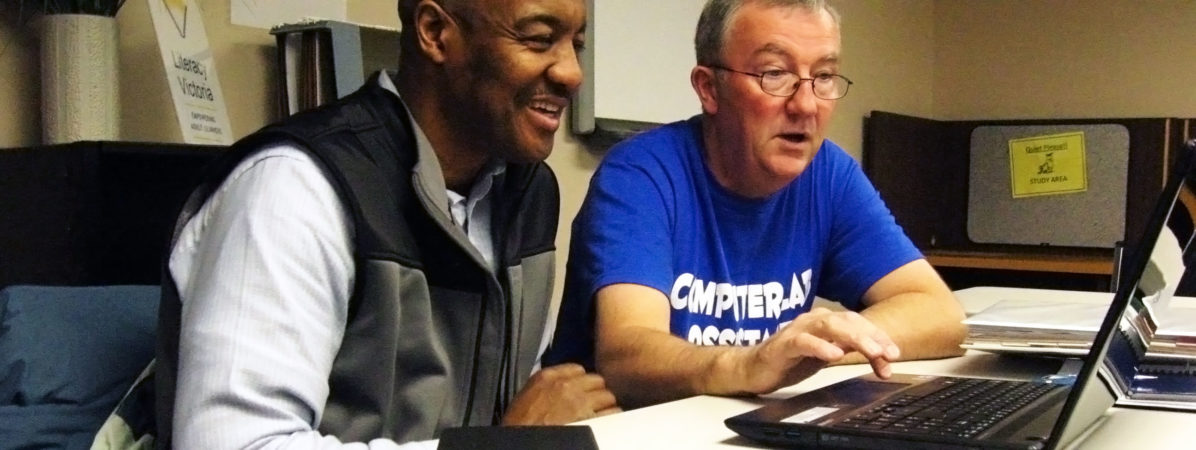
If you work in the field, the words “adult education” probably bring to mind the individual stories of the underskilled and underserved men and women who you’ve helped achieve their goals. Yet for most Americans, there is rarely a face associated with the stats, policies, and debates. Most know very little about the lives of the estimated 36 million adults in the U.S. who struggle with basic skills.
That’s why Digital Promise is starting the Beacon Project. The project will shine a light on a select group of communities working to raise adult skills through the use of digital learning tools. As we chronicle those efforts, we’ll be placing a special emphasis on the achievements and challenges experienced by the adult learners served by these initiatives.
Communities – not individual programs – are our emphasis. Our theory is that the best environments for innovation in adult education are communities working together across multiple agencies and partnerships to scale their efforts to support learners.
By working with learners and community stakeholders, we can highlight what it takes to develop a supportive and innovative adult learning community. And by working with communities that are using technology in ambitious and innovative ways, while also facing common challenges, we can identify critical digital learning gaps and topics for further research or evaluation.
Our Beacon communities are:
Community Contact: Community Action, Inc.
Community Contact: Orleans/Niagara Board of Cooperative Educational Services (ONBOCES)
Community Contact: Pine Technical College (PTC)
Community Contact: Rhode Island Family Literacy Initiative (RIFLI)
Community Contact: Savannah Technical College
Community Contact: The Mayor’s Commission on Literacy (MCOL)
Community Contact: Building Skills Partnership
(Read more about the Beacon communities)
For those who design digital learning tools for this population, we hope to provide insights into adult learning communities and inspire new innovators to imagine how technology can improve opportunities to learn for adults. There are environments where the market – or potential market – for digital adult learning tools is vibrant, and to scale innovation in the field developers and entrepreneurs must better understand those opportunities.
In short, the stories and case studies we will be publishing about Beacon communities over the next several months are intended to help close two gaps:
We also want to engage you in the conversation: ed-tech entrepreneurs looking for an opportunity to apply your talents to the adult skills challenge, researchers looking for a new area to make your mark, adult education teachers or learners who want to share ideas about the technology innovations you’d like to see. We hope our beacons inspire you to get involved.